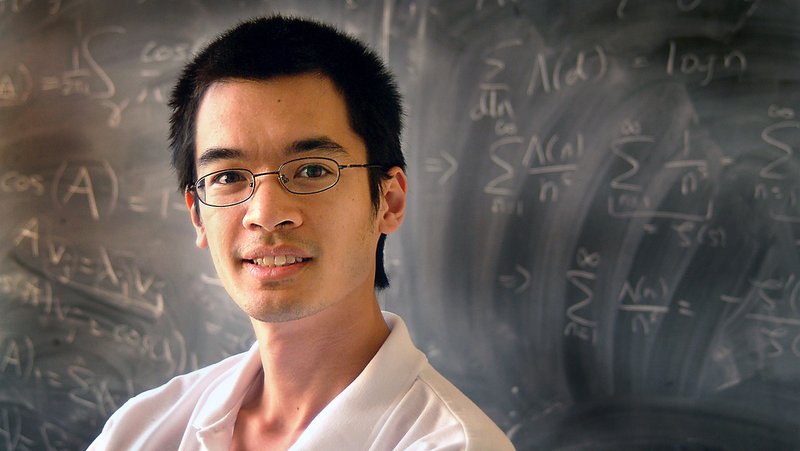The Mozart of mathematics, the most influential mathematician of modern times: Who is Terence Tao?
Terence Tao is an Australian-American mathematician known for his tremendous contributions to the field of mathematics. When you take a look at the list of the most influential mathematicians of the 21st century, his name will catch your eye first.

He is also called the "Mozart of Mathematics" by many mathematicians today.
Terence Tao was born on July 17, 1975, in Australia. His father, Dr. Billy Tao, a pediatrician, earned his medical degree from the University of Hong Kong in 1969. His mother, Grace, graduated from the University of Hong Kong with honors in physics and mathematics. In 1972, Terence's family immigrated to Australia.
Tao's passion for mathematics would begin at a very young age. He learned to read by himself when he was only 2 years old. Terry, who met Miraca Gross, who works with gifted children, when he was 3 years old, would be understood to have the intelligence of 6-7-year-old children.
Terence Chi-Shen Tao (born 17 July 1975) is an Australian mathematician. He is a professor of mathematics at the University of California, Los Angeles (UCLA), where he holds the James and Carol Collins chair. His research includes topics in harmonic analysis, partial differential equations, algebraic combinatorics, arithmetic combinatorics, geometric combinatorics, probability theory, compressed sensing and analytic number theory.
As a result, although it was considered appropriate to start school at the age of 3.5, he started school at the age of 5 because he was not socially ready for it. Terence attended Blackwood High School in Adelaide when he was eight years old. By the age of 11, Terence was attending classes at Flinders University in addition to his regular classes at Blackwood High.
Terence wrote his first research paper at the age of 15. He later earned his Bachelor's degree in 1991 and his Master's degree in 1992 from Flinders University. He was awarded the University Medal and Fulbright Graduate Scholarship at Flinders University for his outstanding skills. As a result, he immigrated to the United States in 1992 to pursue his doctorate.
Terence Tao completed his Ph.D. at the age of 21. He soon joined the University of California. At the age of 24, he qualified to become a professor. He was also one of the youngest scientists to receive this title. It is also known that he has an IQ score of 220-230.
Terence's main work is on the theory of partial differential equations. In 2006, Tao was awarded the Fields Medal, considered the Nobel Prize in mathematics, "for his contributions to partial differential equations, combinatorics, harmonic analysis, and total number theory." With this success, which comes on top of his genius child background, at the age of 31, he once again made his mark as one of the youngest mathematicians to win the Fields Medal.
Terence is a prolific mathematician and is the author or co-author of over 275 research papers. His interests cover various fields of mathematics such as partial differential equations, number theory, combinatorial and harmonic analysis, and acoustic and optical waves. He developed techniques that could simplify the equations describing general relativity, as well as the equations describing the quantum mechanics that govern the movement of light in a fiber optic cable.
